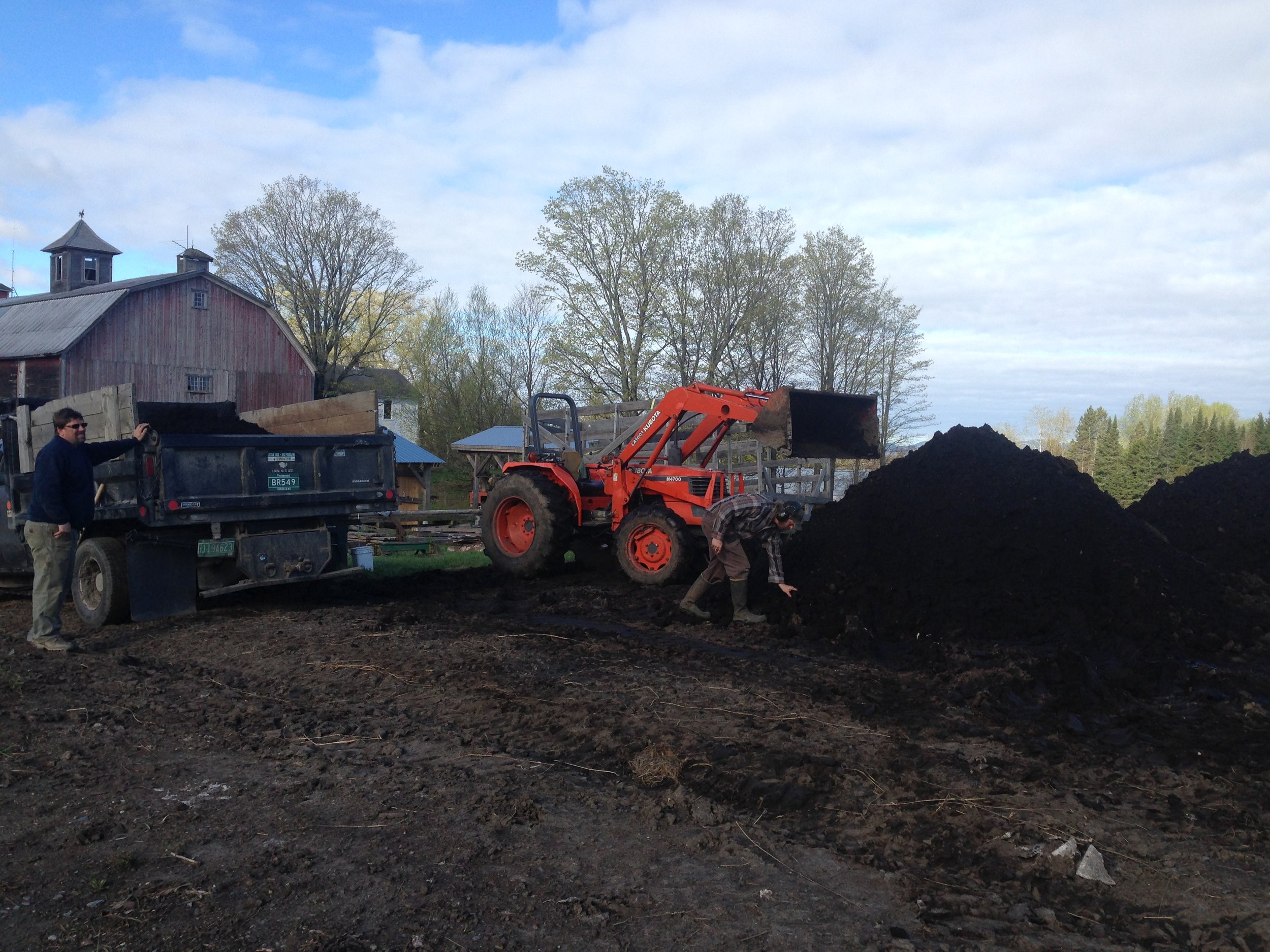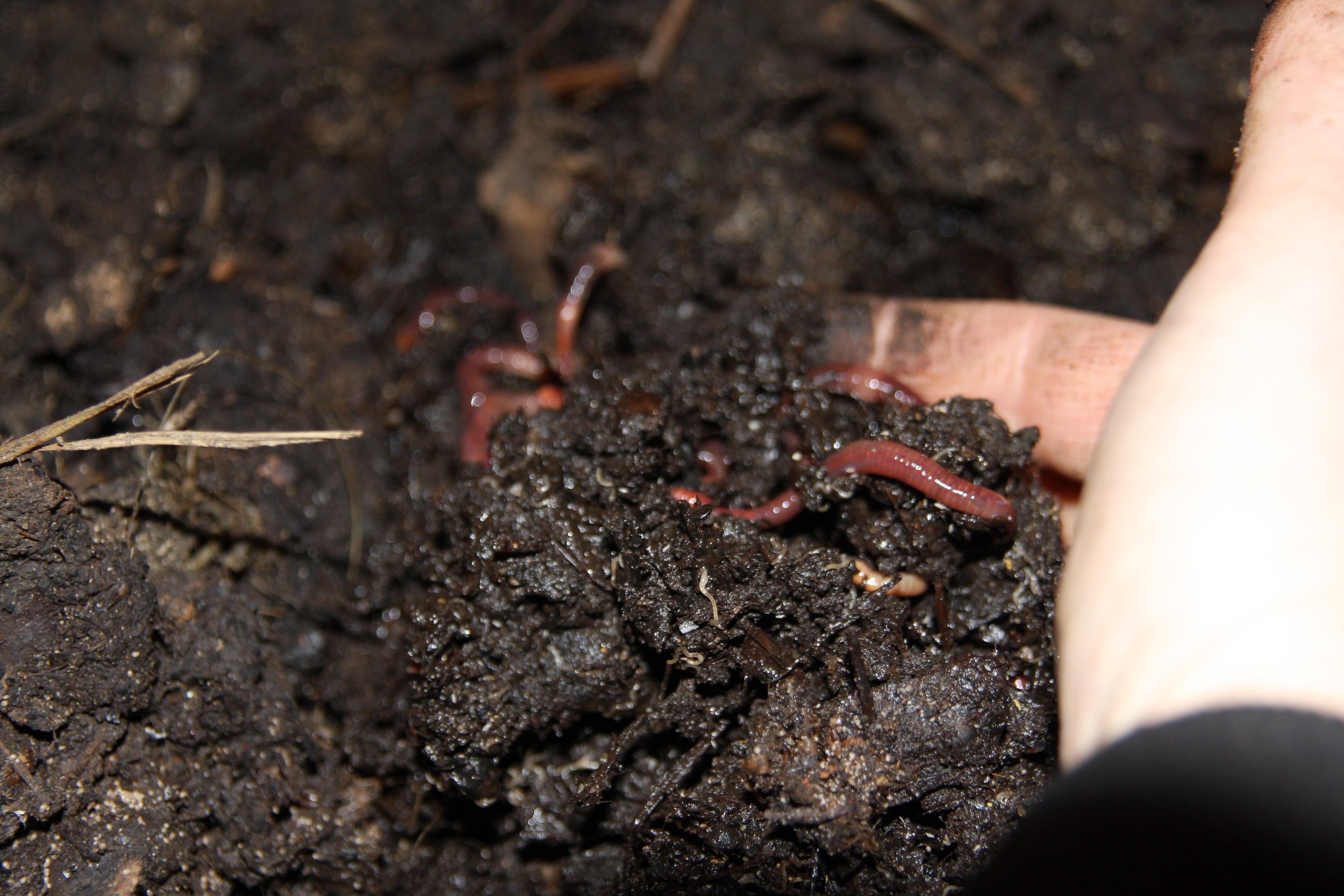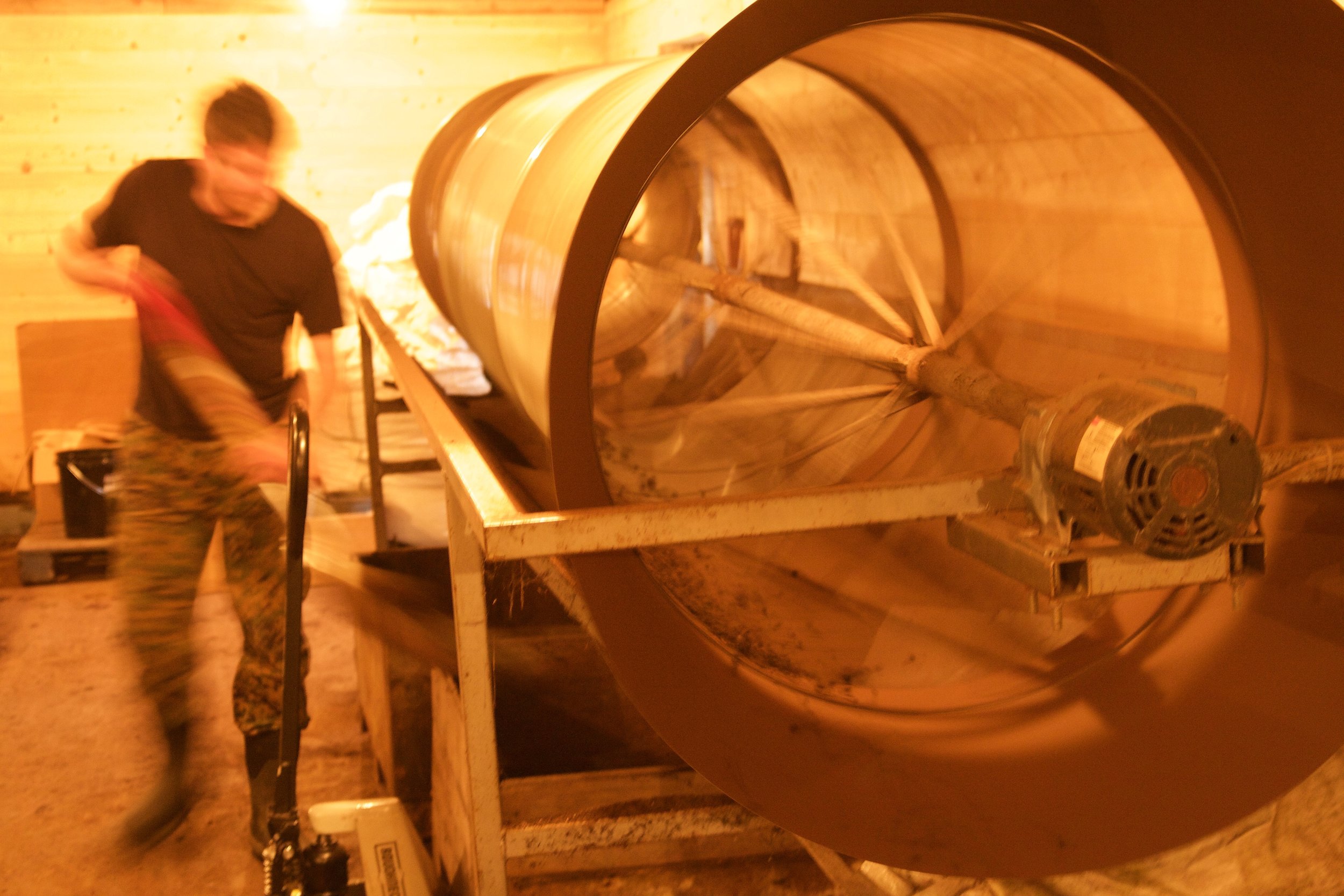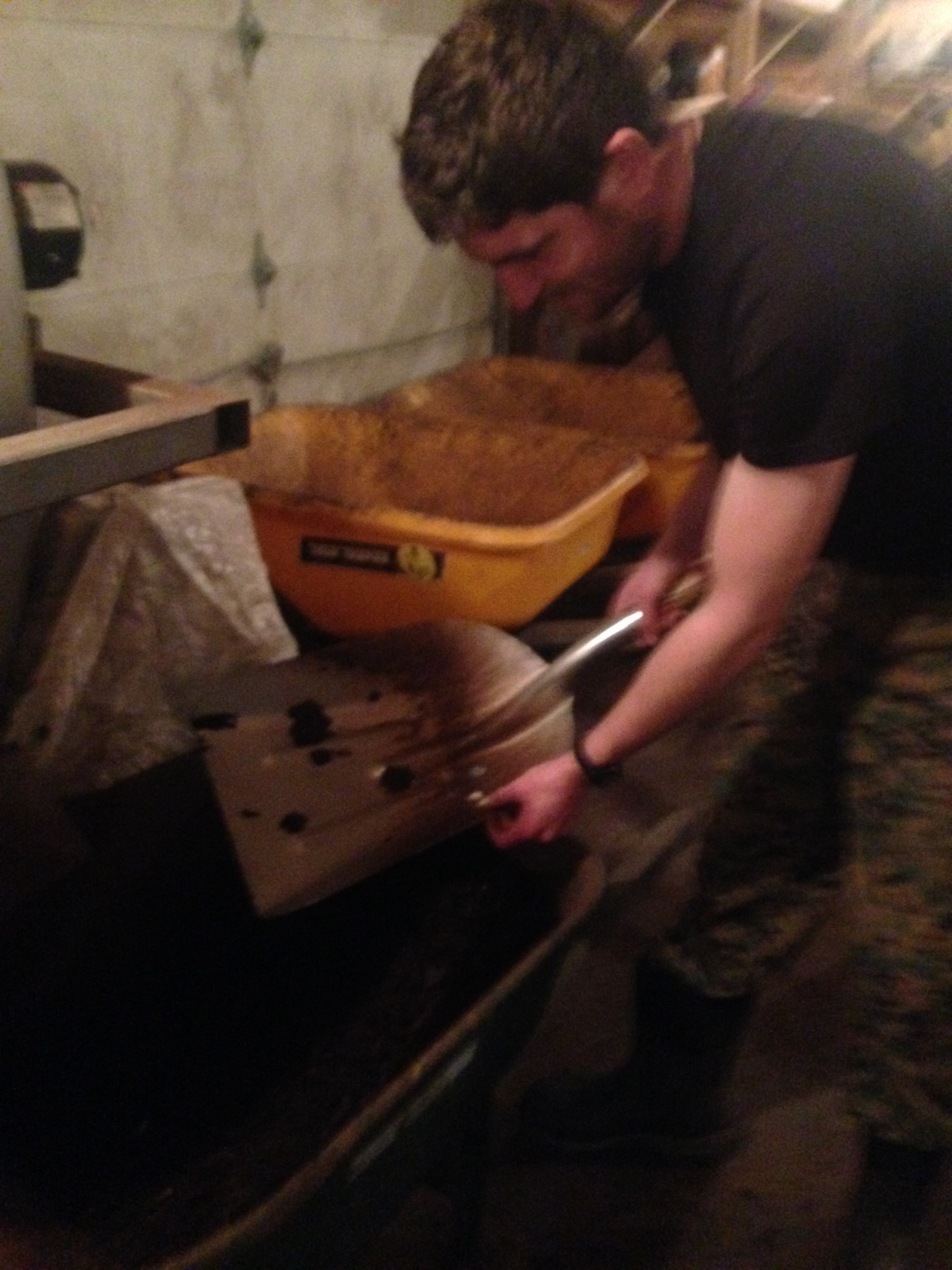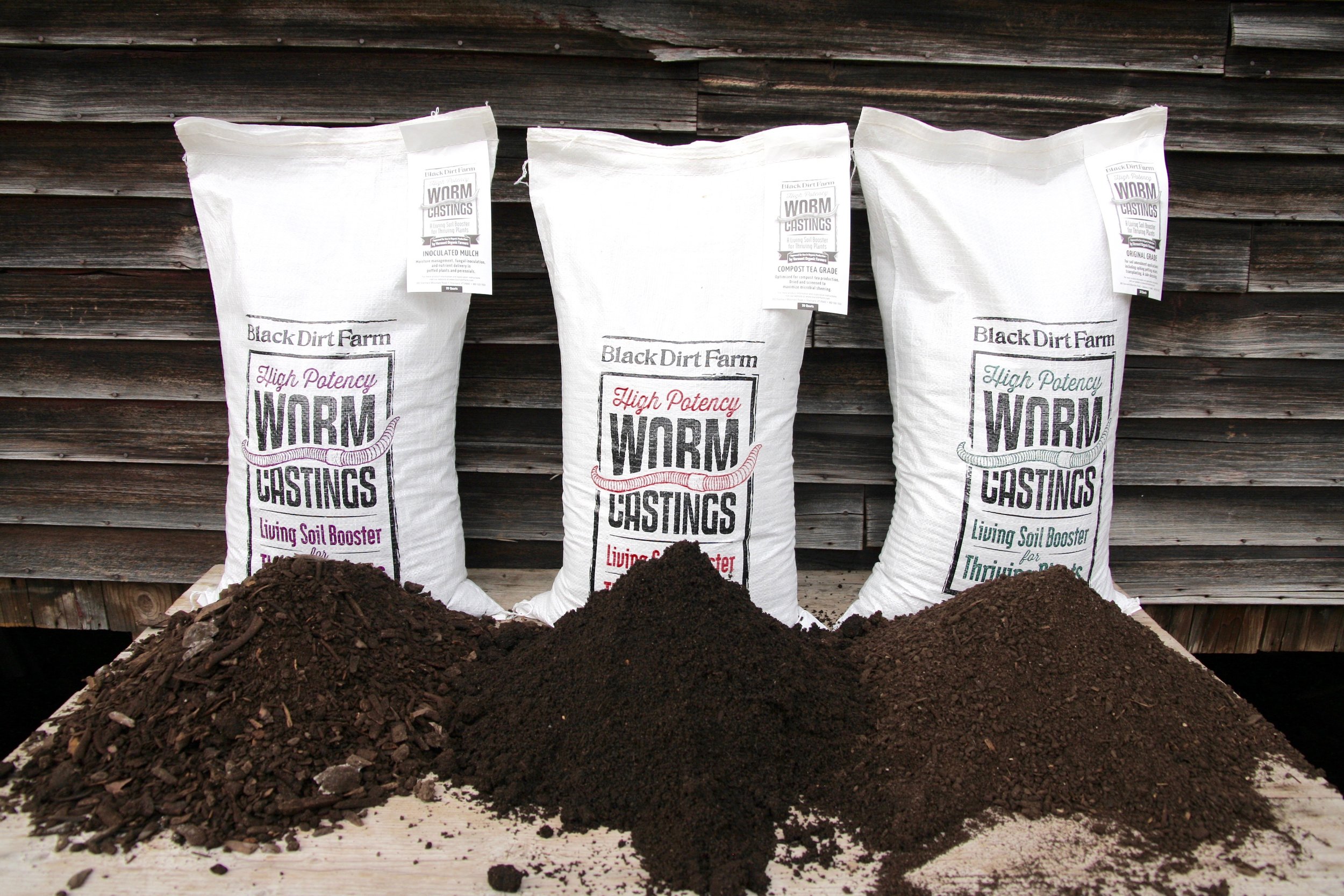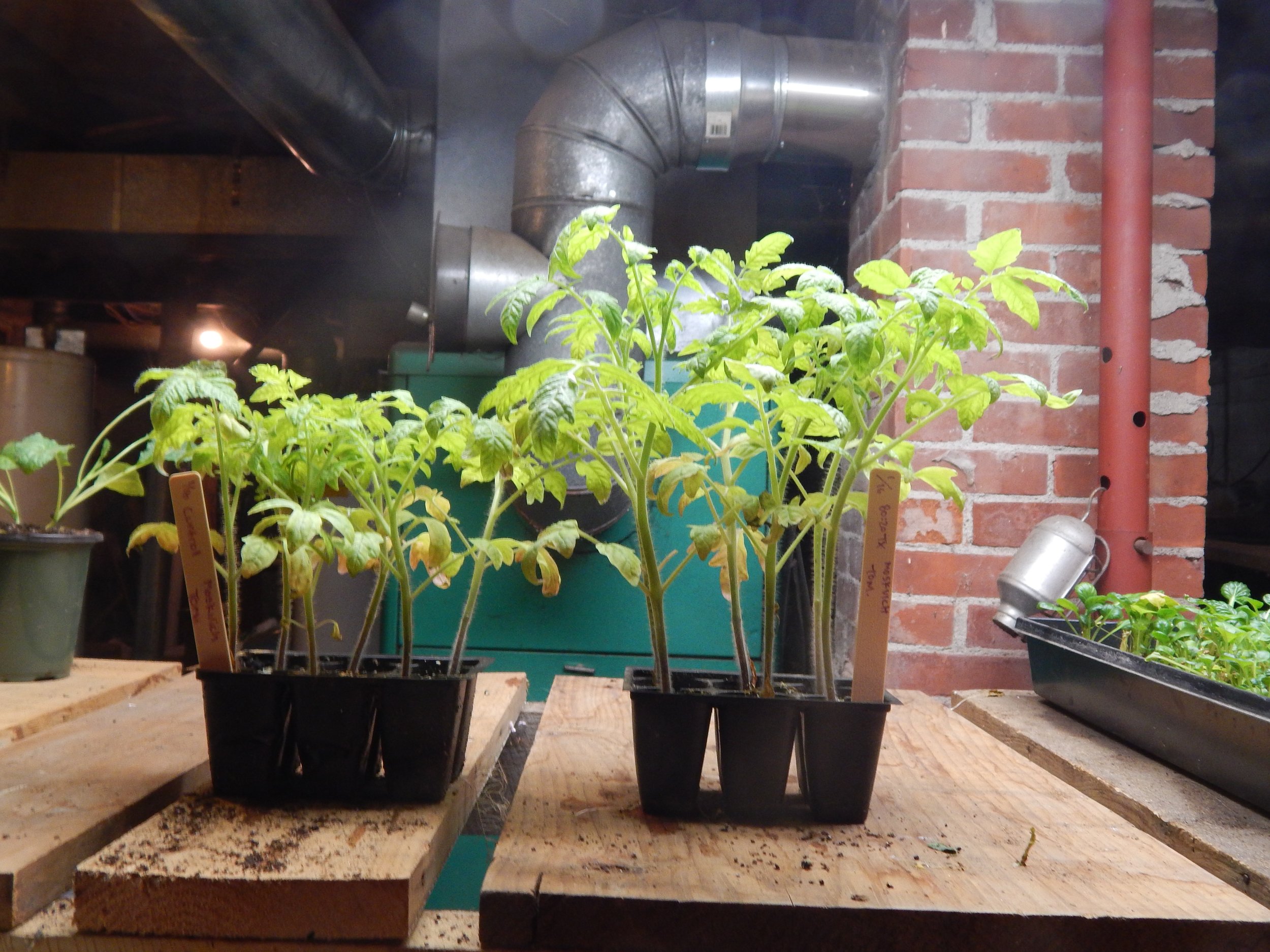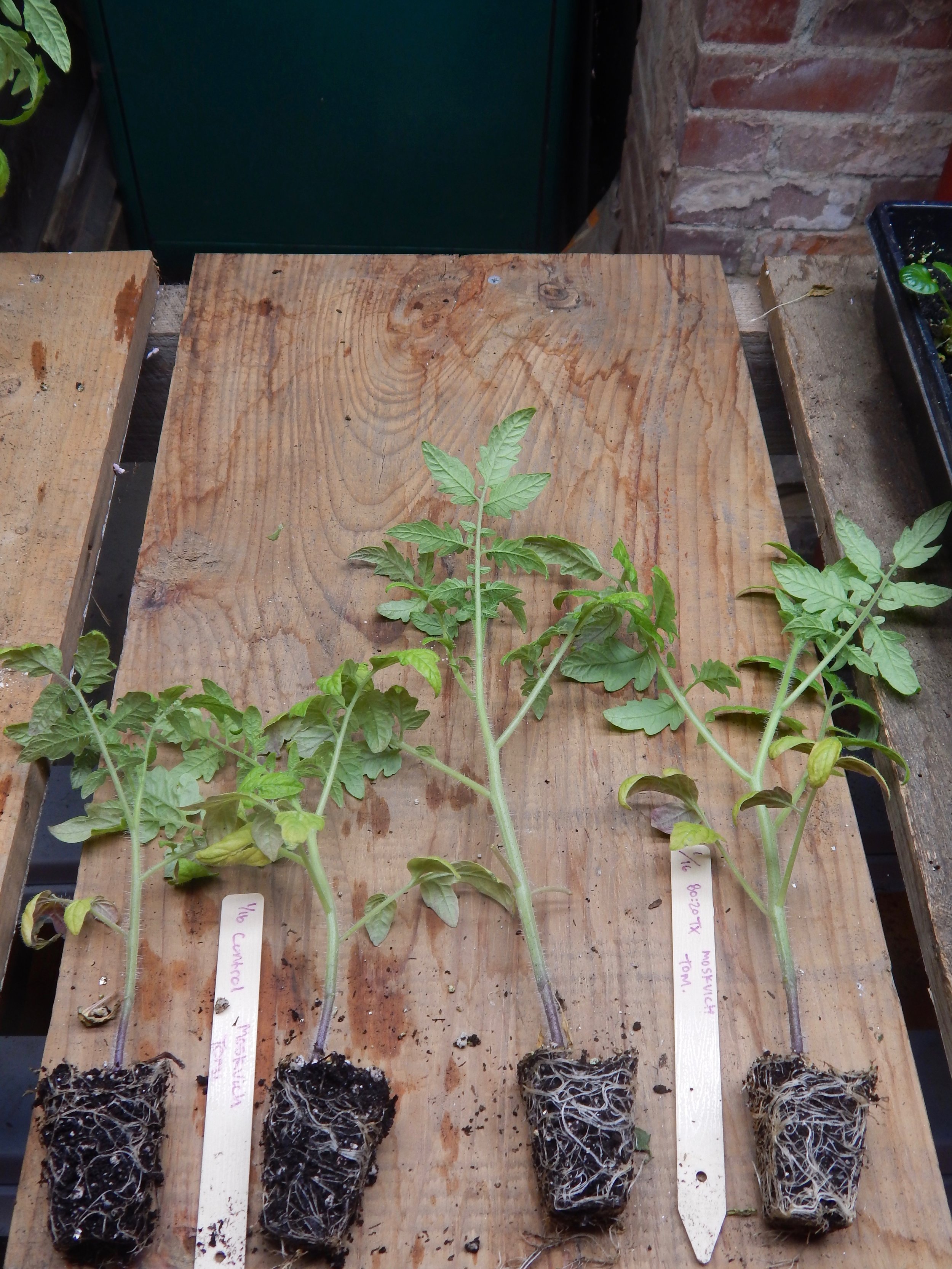Black Dirt Farm's High Potency Worm Castings are rich in microbial life and organic nutrients!
Our High Potency Worm Castings are a unique soil amendment made by the Red Wiggler worm. Their robust biology boosts plant-available fertility and activates soil life, increasing plant health and resilience, producing stronger plants and higher yields. Worm castings build soil structure, improve aeration, moisture retention, suppress disease, and foster a complex web of microbial life to build vibrant soil.
How our Worm Castings are made
Our Commitment to Sourcing & Quality
What are Worm Castings and what do they do?
Application Instructions
How Our Worm Castings Are Made
Black Dirt Farm collects food scraps from businesses, schools, and institutions in the Northeast Kingdom and Lamoille River Valley areas of Vermont. Our compost mix is first fed to our laying hens who forage in our compost piles, contributing their manure and blending action as they scratch about for their meal. What isn’t eaten by the hens is removed from their feeding bin and stacked into windrows (tall triangular piles that maximize passive aeration), in which temperatures reach between 140 and 160°F, inactivating weed seeds and pathogens. After the material has achieved the time and temperature requirements for Organic Certification and the EPA’s Process for the Further Reduction of Pathogens (131°F+ for 15 days with 5 turnings of the material), a portion of that material is removed and fed to our worms. The temperatures achieved in the windrow largely reflect the cumulative body heat produced by the rapidly growing bacterial community in the compost. As a result, the material going into the worm bin is loaded with microorganisms, which the worms will feed on, while the change in management at this point rapidly cools the material and allows for low temperature processing. Nitrogen, a critical plant growth nutrient, among others, is volatized at high temperatures, and this cool temperature processing environment helps to retain more of it in total, and more of it in its most fragile and plant available forms. The food web dynamic that results contributes to the production of a biologically robust finished material that will both stimulate your plants, and help support a soil environment in which disease organisms are less able to establish populations that reach pathogenic levels.
“Your products demonstrate understanding and care for the process of VermiCompost. They were the best quality of the five products we tried!”
The quality of worm castings is determined by the recipe, which at Black Dirt Farm contains 5 or 6 distinct materials. We have crafted our recipe for nutrient density and the rapid and maximum growth of diverse bacterial and fungal communities within the materials by providing optimum microbial nutrition, food webs, and aerobic conditions. Over the composting process we take great care to ensure nutrient retention and the development of robust biological communities.
Our Commitment To Sourcing & Quality
We provide a wide range of food sources to grow a diverse community of microorganisms. Our composting recipe features at least nine ingredients, including six distinct sources of carbon. Feedstocks include food scraps; beef, horse, and chicken manure; hay; hardwood sawdust and mixed species of wood chips; nitre; and paper products.
We're serious about sourcing. We take significant measures to prevent herbicides, plastics and other contaminants from entering our process to ensure the cleanest possible product for your plants.
All materials are pre-composted at thermophilic temperatures to inactivate weed seeds and pathogens.
We perform regular trials and bioassays.
“Castings play a huge part in our organic operation, and in optimizing harvests - quality is imperative. Black Dirt Farm has consistently provided a superior product to any on the market, potency proven time again with each application, and regularly quantified through lab analysis.”
What are Worm Castings and what do they do?
Vermicompost: A Living Soil Amendment Available from Cornell Waste Mgmt. Institute
Worm castings or vermicompost, is worm manure. As food scraps pass through the worm's digestive system, the decomposing matter is colonized by beneficial microorganisms. The resulting manure known as worm castings, naturally contains concentrated communities of valuable bacteria, fungi, protozoa, growth-promoting hormones, fulvic and humic acids, enzymes and other bioactive substances known to improve germination and plant vigor while increasing available fertility. The worms' mucus secretions provide more nutrition and microbial diversity than is found in most garden composts.
Worm castings can be used to enrich potting mix, rejuvenate houseplants, side-dress vegetables and flowers, turbo-charge transplants, or make compost tea. Blended into potting mix worm castings will promote earlier seed germination and seedling vigor, reducing damping off diseases. During transplant worm castings will increase plants' rebound to shock, support root growth and cell division, retain moisture in the root zone, and inoculate the root zone with beneficial microorganisms that provide some protection from soil born pathogens. During the growing season castings are a premium side-dress, boosting available nitrogen and other growth-limiting nutrients. A tea can be made with the castings for foliar application to help prevent against foliar diseases.
Black Dirt Farm makes three grades of Worm Castings:
Tea Grade: Optimized for compost tea production, dried and screened to 1/8” to maximize microbial sheering during brewing.
Soil Grade: Our most versatile product. Excellent for targeted use in potting mixes, during transplanting or as a side dressing.
Inoculated Mulch: Roughly 50:50 worm castings to composted wood material, inoculated with endo-mycorrhizae. Surface apply for moisture management, fungal inoculation, and nutrient delivery.
Application Instructions
In general, a little goes a long way so use as instructed and be careful not to over-apply. Worm castings perform best when they are gently worked into the soil and kept moist.
Seedlings & Potting Mixes
For potting mixes without compost: blend 15% of the total volume (1 1/2 parts worm castings to 8 1/2 parts potting mix)
For potting mixes with compost: blend at 5-10% of the total volume (1/2 to 1 part worm castings to 9 or 9 1/2 parts potting mix)
Annual Flowers & Vegetables
In direct seeding, line the seed furrow 1" deep with worm castings and work into the soil.
In transplanting, add 1/4 -1/2 cup into the transplant hole and work into the soil.
For a mid-season side-dress, work 1/2 - 1 cup of worm castings into the soil around the base of the plant, or one cup per foot row. Side-dress every 1-2 months.
Perennial Flowers, Berries, Trees & Shrubs
At Transplant: depending on the size of the transplant work 1/2 - 4 cups into the soil at the bottom of the planting hole.
For Maintenance: depending on the size of the plant, work 1/2 - 4 cups into the soil around the base of the plant and mulch over top. Apply in the Spring, Summer, and Fall.
Potted Plants & Hanging Baskets
For Maintenance: apply 1/2" of worm castings to the top of the soil every 2 months.
For Re-potting: blend into the potting mix at 15% volume (1 1/2 parts worm castings to 8 1/2 parts potting mix).
Compost Tea
Brewing a batch of compost tea is an excellent way to make a modest amount of worm castings stretch further. By suspending the worm castings in water, aerating, and adding molasses as an energy source you will dramatically increase populations of beneficial organisms. Compost tea can be used in a variety of ways:
To encourage strong root growth & to enhance life in the soil - water in at the base of the plant
To suppress foliar diseases and provide nutrient uptake through the leaves - use as a foliar spray
Apply to a compost pile or composting toilet
This recipe will turn 2 quarts of worm castings into 8 gallons of compost tea. The tea must brew for 3 days in a warm room (65F) and then be applied within the hour, before it goes anaerobic.
MATERIALS YOU WILL NEED:
4 Gallons of water (non-chlorinated)*
2 Quarts of Black Dirt Farm High Potency Worm Castings
2 Tablespoons of unsulphured molasses
A Black Dirt Farm Compost Tea Kit; or make your own with a 5-gallon bucket, an aquarium pump, air stones, a gang valve, and tubing.
*Important note about water: If your tap water is chlorinated, you will need to remove the chlorine, or it will kill the organisms you are trying to grow. Fill a bucket with water and leave it out overnight. Place the air stones in the water and turn on the pump for an hour to off-gas the chlorine.
BREWING INSTRUCTIONS:
Add 4 gallons of chlorine-free water to a bucket and leave for 2 hours in a warm room.
Add 2 quarts of Worm Castings to the bucket, and give the mixture a vigorous stir. Position air stones at the bottom of the bucket underneath the Worm Castings. Turn on the pump.
Once the mixture starts bubbling, add molasses.
Aerate for 48-72 hours in a warm room. Stir the mixture a few times daily, repositioning the air stones afterwards to ensure they are well placed.
Brew for no longer than 72 hours. Turn off the pump, and let the sediment settle for 20 minutes.
Pour off liquid into another bucket. Filter through pantyhose or a fine sieve if applying with a sprayer.
Dilute with 4 gallons of non-chlorinated water and use immediately.
Clean bucket & air stones before putting away.




